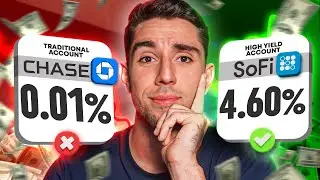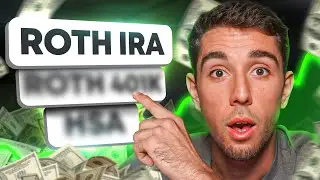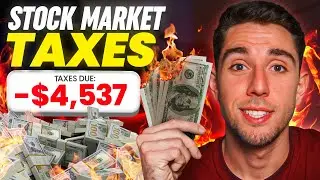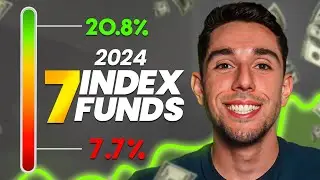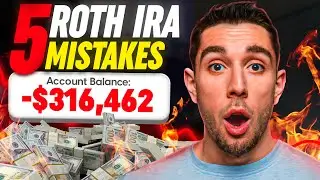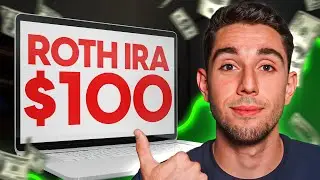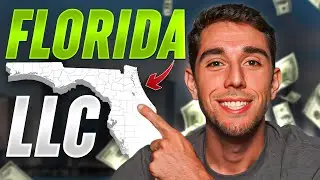The 7 BEST Vanguard Index Funds For Long Term Growth
Here is a detailed review of The 7 BEST Vanguard Index Funds To Own For Long Term Growth. In this video, I discuss what an index fund is, which indexes each fund tracks, how much they cost to own, why these are some of the top investments, and how you could use vanguards index funds to build wealth long term. - Enjoy!
ETF Overlap Tool 👉 https://www.etfrc.com/funds/overlap.php
Free Investing For Beginners Guide 👉 https://dannysully.link/Investing101
Top Financial Products:
🏦 High Yield Savings Accounts: https://dannysully.link/Savings
📈 Investing Platforms: https://dannysully.link/Investing
🔒 Certificate Of Deposits (CDs): https://dannysully.link/CDs
Resources:
📚 Free Learning Guides: https://dannysully.link/FreeGuides
🗞️ Newsletter: https://dannysully.link/Newsletter
🌐 Website: https://www.dannysully.com/
🔑 Patreon (My Portfolio & Exclusive Content) - / dannysully
🐦 Twitter - / dannysully_
🎥 Relevant YouTube Videos 🎥
• Mutual Funds vs Index Funds vs ETFs |...
• Vanguard ETFs For Beginners | The Ult...
• Top 10 Investing Mistakes You NEED TO...
• Roth IRA Investing For Beginners | Th...
• How To Start A Dividend Portfolio Wit...
• Where To Open A Roth IRA | 3 BEST Rot...
⏰ Timestamps ⏰
00:00 Intro
00:42 1. Vanguard S&P 500 Index Fund (VOO/VFIAX)
03:06 2. Vanguard Mid-Cap Index Fund (VO/VIMAX)
04:15 3. Vanguard Small-Cap Index Fund (VB/VSMAX)
05:21 4. Vanguard Total Stock Market Index Fund (VTI/VTSAX)
06:54 5. Vanguard Information Technology (VGT/VITAX)
08:20 6. Vanguard Consumer Discretionary (VCR/VCDAX)
09:48 7. Vanguard Materials (VAW/VMIAX)
10:49 Final Thoughts
What is an index fund and how does it work?
An index fund is a type of mutual fund or ETF that aims to replicate the performance of a specific index, such as the S&P 500. By investing in an index fund, you gain exposure to a broad range of companies within the index, allowing for diversified investment with minimal effort.
Why is passive investing through index funds recommended by experts like Warren Buffett?
Warren Buffett recommends passive investing through index funds because it allows investors to gain broad market exposure with low costs and minimal effort. Index funds are designed to match market performance, providing a reliable way to build wealth over time.
How do ETFs differ from mutual funds in terms of tax efficiency and trading?
ETFs are generally more tax efficient than mutual funds because they are structured to minimize capital gains distributions. Additionally, ETFs can be bought and sold throughout the trading day like stocks, whereas mutual funds are only traded at the end of the market day.
What are the potential returns from investing in index funds over the long term?
Historically, index funds have provided solid long-term returns. For example, with an average annual return of around 10%, investing $7,000 per year could potentially grow to over $1 million in 30 years, which is even better beneficial in a tax-advantaged account like a Roth IRA.
What are the key factors to consider when choosing an index fund?
Key factors to consider include the fund’s expense ratio, the index it tracks, the sectors and companies it covers, and its historical performance. Low expense ratios and broad market exposure are crucial for maximizing returns and minimizing costs over time.
🔔 Don't forget to subscribe with notifications on and hit that like button!
Disclaimer: This content is for entertainment only and does not constitute legal, tax, or financial advice. It is for general informational purposes. The presenter is not a licensed professional. Viewers should consult their attorney, accountant, or financial advisor for advice on specific legal, tax, or financial issues.





![[ Live ] Roblox : Funky Friday เล่นเพลงรออัพเดทใหม่ [ โดเนท 5 บาทขึ้นจอ ]](https://images.videosashka.com/watch/ERsbbvtcRzw)






